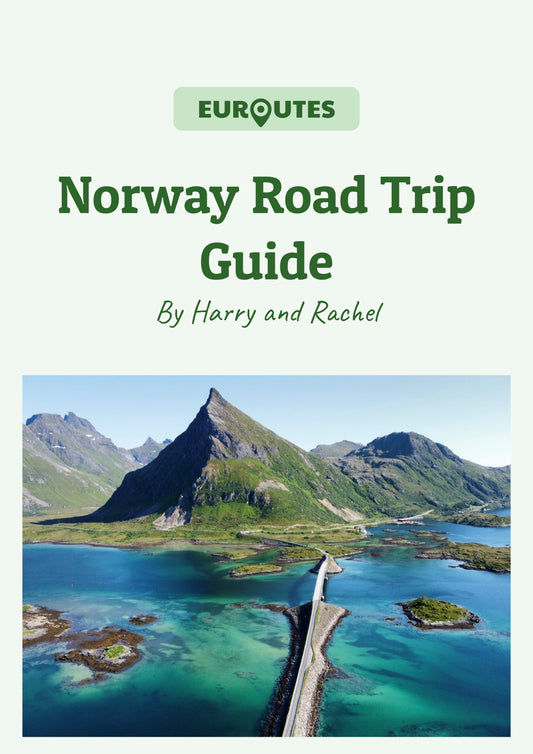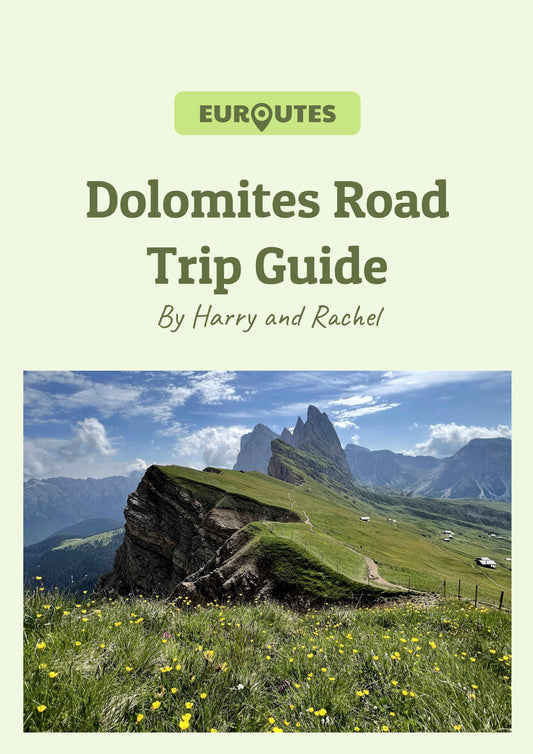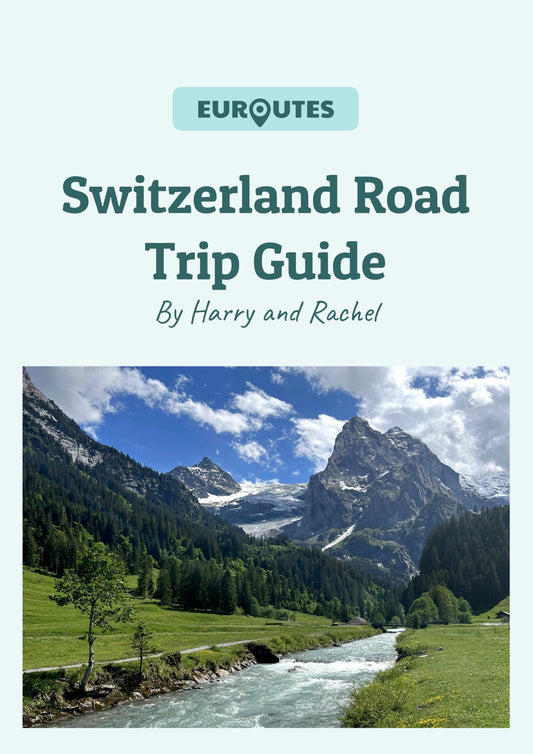
Road Tripping Europe Post-Brexit: How to stay in Europe longer than 90 days
One of the most popular questions we get from other travellers, especially those from the UK, is how we managed to travel for so long with the Schengen area rules imposed on Brits after Brexit. We'll break it down for you in this blog! It’s still possible to travel long-term in Europe if you’re from the UK, but it does require more planning.
Table of Contents
How to stay in Europe longer than 90 days
Our adventures
Over the past two years, we've traveled in our campervan for around 18 months and only spent four months back in the UK during that time. We partly spent time at home to be out of the Schengen countries, but we also wanted to see family and earn some more money.
Understanding the Schengen Area
What is the Schengen Area?
The Schengen Area is a border-free zone in Europe that allows freedom of movement for people. It includes countries that have agreed to a joint visa policy, enabling tourists to travel between member countries without additional visas.
EU vs. Schengen Area
While all Schengen countries are in Europe, not all are in the EU. For instance, Norway and Switzerland are part of the Schengen Area but not the EU.
On the other hand, some EU countries, like Ireland, are not part of the Schengen Zone. Understanding the difference between these and the exceptions is very important for planning your travel.
You can find a lot of useful maps that highlight the schengen and non-schengen areas online.
Schengen countries: Austria, Belgium, Bulgaria, Czechia, Croatia, Denmark, Estonia, Finland, France, Germany, Greece, Hungary, Iceland, Italy, Latvia, Lithuania, Liechtenstein, Luxemburg, Malta, Norway, The Netherlands, Poland, Portugal, Romenia, Slovakia, Slovenia, Spain, Sweden and Switzerland.
European countries that are not in the Shengen area: Albania, Andorra, Belarus, Bosnia and Herzegovina, Cyprus, Ireland, Kosovo, Moldova, Monaco, Montenegro, North Macedonia, Russia, San Marino, Serbia, Ukraine and Vatican City

Navigating the 90-Day Rule
As UK citizens, we are able to travel in EU countries for 90 days visa-free within a 180-day period. You can travel to more than one country in a 180-day period, but your total stay in the Schengen Area must not exceed 90 days within any 180 days.
It doesn't matter how many countries you visit; the 180-day period keeps 'rolling'. If you are going in and out of EU countries it’s definitely worth considering using apps and spreadsheets to keep a record of your time.
Schengen Shuffle: How to Maximise Your Travel Time
The good news is that you don’t need to return to the UK after spending 90 days in the Schengen Area.
There are several non-Schengen countries as outlined above that you can visit, which have become some of our favourites. Albania, Montenegro, North Macedonia, Turkey, and Morocco are excellent options for extending your travels.
We like to call this moving in and out of the Schengen area, the Schengen shuffle!
Our 2022 and 2023 Road Trip Itineraries: The Schengen Shuffle
In 2022, we spent two months in the Alps, then visited Croatia, Bosnia, Montenegro, Albania, North Macedonia, and Greece. Croatia has since joined the Schengen Zone.
In 2023, we traveled through Norway and Denmark, then into Romania, Bulgaria, and Turkey to exit the Schengen Zone before heading to Spain, Portugal, and then Morocco to continue our 'Schengen shuffle'.

Interested in road tripping Morocco?
Take the stress out of researching and planning a Morocco road trip with our guide and map. Follow our pre-planned route around Morocco safe in the knowledge that you will visit the best locations there are!
Price: £13.99
Shop nowEssential Documents and Border Control Tips
- Passport requirements and border control procedures: Ensure your passport is valid for at least six months beyond your planned stay.
- Necessary vehicle documents: Carry your vehicle registration and insurance papers, as soon as you leave the EU, these are asked for at every border so it’s essential that you have them.
- Importance of passport stamps: Make sure your passport is stamped correctly upon entry and exit, this is how you can prove that you’ve been out of the schengen zone so it’s very important to get them. No, not every border guard will do it by default so you may have to explicitly ask for them to do it. When we entered Bosnia and Herzegovina, Rach had to ask and the border guard asked if it was for a souvenir! So, don’t expect them all to understand.
Driving in Europe After Brexit
- Requirements for UK stickers and registration plates: When driving in EU countries, it’s important to have a UK sticker. We actually got fined in Spain for not having one, so consider this your warning.
- International Driving Permit (IDP): We got a few different IDPs on our first trip and this in our experience is definitely not something that is ever asked for. If you really want to be on the safeside you can get them from your local Post Office, but we didn’t bother on our second road trip.
- Vehicle insurance tips for extended travel: Many insurance companies only cover 90 days in Europe, so you’ll need to find an insurer that accommodates longer trips.
Taking a Dog with You After Brexit
The main thing to note about travelling with a dog post-Brexit is that you need an animal health certificate or a European passport for your dog. For countries like Morocco and Turkey, additional requirements like a rabies titer test are necessary. We’ve written a longer blog on traveling with your dog so check that out if you want to take them with you.
👉Travelling with a dog | UK to Europe

Our Biggest Tips
- Stay updated: Keep yourself informed about countries negotiating to join the Schengen Area.
- Keep a record of your Schengen time: If you’re away for a long time, there’s a chance you’ll be questioned. We were questioned upon entering Greece after spending three months in the Alps and another three months in the Balkans. Similarly, at the border with France when returning to the UK, we were accused of overstaying due to Bulgaria and Romania joining the Schengen Zone after our visit.
By planning and staying informed, you can enjoy long-term travel in Europe even with the post-Brexit Schengen rules and you get to explore some countries you might not have considered going to otherwise! Safe travels.
If you're looking for a general guide to preparing and planning your campervan adventures, check out our blog below.







